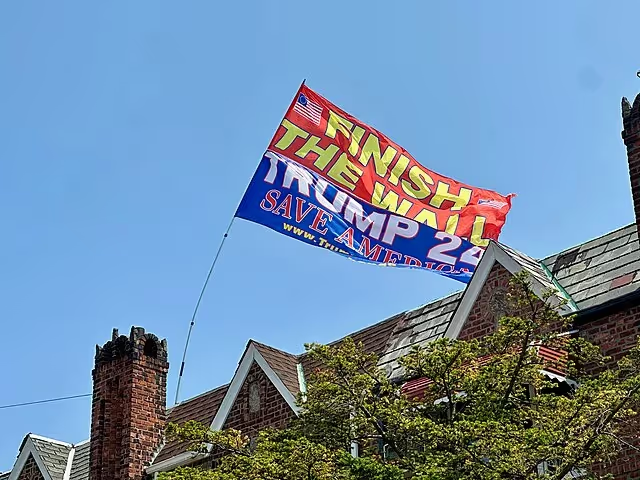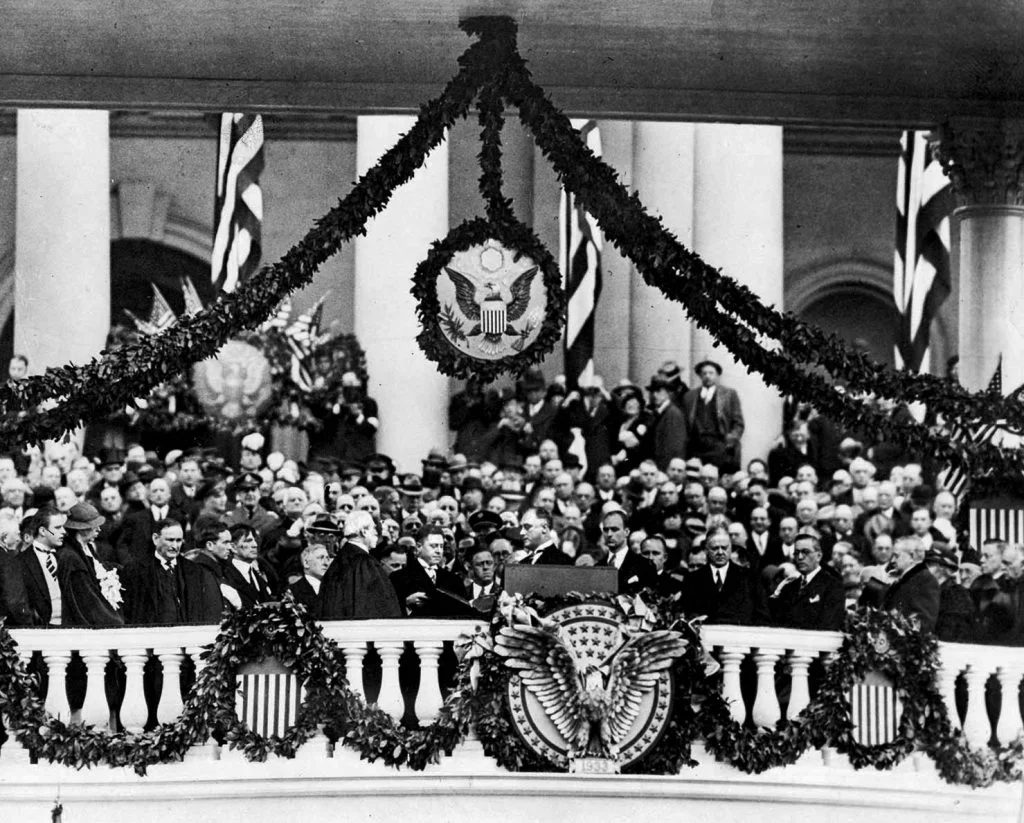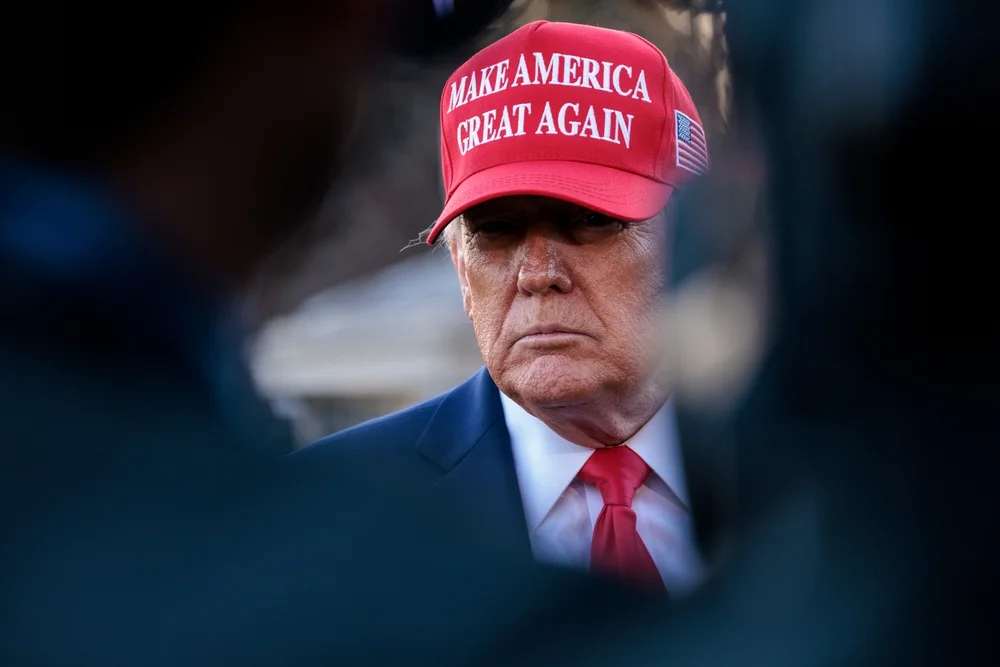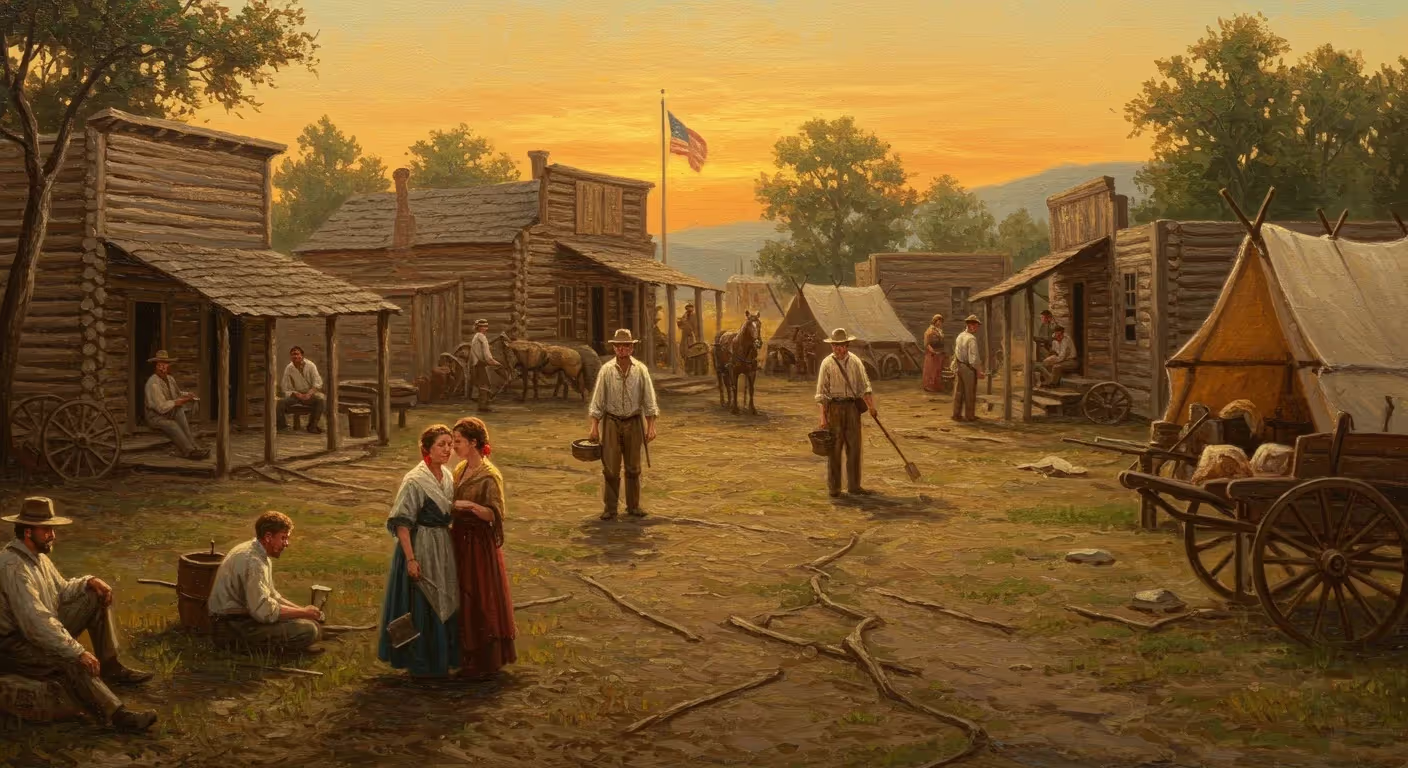
Conservatism's Timeless Triad: Puritans, Pioneers, and Robber Barons
The ghosts of the puritan, the pioneer, and the robber baron, will always roam the land.
Whenever people recognize something new, they must give that discovery a name, even if that discovery, ironically enough, involves conservatism. Over the last fifty years, American intellectuals have “discovered” no less than six variants of conservatism, including economic conservatism, social conservatism, religious conservatism, traditional conservatism, neoconservatism, and national conservatism. Once a new name for conservatism has been discovered, it serves as a banner around which like-minded intellectuals and voters rally. It exists, it lives, this one or two-word name, not just by logic, but by its inherent linguistic power. Conservatism—the word begins with a prefix that means “thoroughly,” as in “conclude,” when one has thoroughly closed a debate on the issue of its truthfulness. It is a strong, full, masculine word, fitting for idealists with a political program.
I myself do not subscribe to any of the conservative schools. I have conservative leanings, but I am not a movement conservative, and not just because I resist labels on principle. Part of the problem is that the labels, like all ideological abstractions, are too rigid; they do not allow for individual variations. I draw a fair amount from economic conservatism, some from social conservatism, much less from neoconservatism, and a little more from national conservatism. Trying to express my political views through these labels becomes cumbersome.
The bigger issue is that the labels are useless, politically speaking. This notion may seem odd. Did not President Reagan, with journalist William F. Buckley’s help, unite three major strands of conservatism—economic, social, and neo—to create the modern conservative movement that passed in and out of power until Trump? As the narrative goes, conservatism peaked in the 1980s, then, during the 2000s, enjoyed a kind of Indian summer under George W. Bush. Trouble followed in the form of Trump, whose populism shares only a few ideas with intellectual conservatism. Today, conservative intellectuals feel an urgent need to give Trumpism a firmer foundation, to somehow claim Trump for a school of conservatism, and to encourage Trump voters to see themselves as members of that school. They play a game analogous to soup-making—a pinch of nationalism here, a dash of family values there—looking for just the right mix that will win adherents, at least among ideologically-minded people, before giving it a name.
The problem is that intellectuals work from the top down, starting from theory, while the beliefs pushed by core Trump voters percolate from the ground up, and are a poor fit for labels drawn from theory. For example, capitalism is associated with economic conservatism, but can Trump’s version of capitalism be related to economic conservatism when Trump adds to the deficit, supports protectionism, and wrangles a government stake in Intel? Opposition to gay marriage is associated with social conservatism, but can Trump’s version of family values be related to social conservatism when Trump not only ignores the gay marriage issue but has appointed the first married gay Secretary of the Treasury?
In trying to imagine conservatism in the future, it might be more productive to ditch the different schools altogether, to think not in abstract terms but in terms of American character types. Doing so may better explain the recent past in American politics, while also helping conservatives plot their future course.
America is a diverse country, so much so that it is hard to speak of a “typical” American. Indeed, Americans are the most variegated people on earth. Nevertheless, within the first hundred years of its existence, three character types sufficiently dominated the country to make them recognizable to anyone: the puritan, the pioneer, and the robber baron.
First, the puritan, for whom life was a pilgrimage, a road to Heaven. The puritans prided themselves on a certain moral austerity and strictness; they harbored an instinct to tear out sin from the human heart. During the country’s early years, they fought against human nature to instill morality in America, and to this day, they serve as the origin of middle-class respectability and prudery. With a special penchant for policing words, they were once said by writer Aldous Huxley to “wear fig leaves over their mouths.” Stern workers, virtuous and intolerant, they nevertheless had the strict discipline needed to turn swamps, deserts, and wastelands into a great country.
Second, the pioneer—steadfast, determined, confident, eager to start out and build. Pioneers loved equality because they imagined everyone working together to conquer nature. Conversely, they hated special identities, especially those grounded in birth, as birth counts for nothing in the wilderness. They admired people of action because in their world, ceaseless activity was essential. They disliked the state and preferred to settle their affairs on their own. Most of all, they were optimists; for them, success always lay a little further on. They, too, built the country.
Third, the robber baron, who by strength, skill, or duplicity, rose to great wealth. Lords of banking, industry, or commerce, the robber barons were competitive with one another; they liked to fight—bank against bank, railroad against railroad. Generous but vain, they endowed colleges, libraries, and symphony halls. In some ways, they were stronger than the government—and they expected to be; the richest and most powerful among them presumed to get away with a bit of law-breaking from time to time. They fascinated the public, and when they spoke, average people listened. However, it was not them speaking so much as their millions speaking—and when money speaks in America, it speaks authoritatively. They, too, built the country.
Although existing in different forms, all three breeds still live. We still have puritans, frowning and censoring, with fig leaves over their mouths, and trying to put fig leaves over ours. The days of the covered wagon are over, but pioneers created the tech industry in Silicon Valley and the Research Triangle in North Carolina, while the less famous among them created businesses ranging from handmade furniture to local restaurants to online apparel. Robber barons now have billions instead of millions. Those with only millions are more numerous than before, but, like the earlier robber barons, they give to their favorite cause, often with an inflated sense of self-importance, and expect their cause to triumph.
More importantly, each breed has its liberal and conservative variants. Puritans exist on the right among the religious, but also on the left in the form of woke progressives, who are especially quick to scold, berate, and hush others. Pioneers and robber barons also exist among the right and left.
Rather than viewing the recent history of the conservative movement as the story of its ideological schools, it is better to view it through the prism of these three types.
Conservatives dominated during the 1980s not because they united three schools of conservatism, but because they united the dominant puritan, pioneer, and robber baron types of their day. Those types had only a correlation with the conservative schools. The puritans, in the form of the Moral Majority, pro-life activists, and the family values crowd, coincided with social conservatism. The pioneers, in the form of Yuppies eager to strike out on their own and make a fortune, and the older robber barons who had already done so, both supported tax cuts and deregulation, and coincided with economic conservatism. All three types sympathized with neoconservatism’s aggressive foreign policy, whether among the puritans, with Reagan channeling John Winthrop and describing America as a “shining city upon a hill,” or among the pioneers and robber barons, who saw the potential for immense profits in defense industry expansion.
For the next forty years, the conservative movement would never again so dominate, as it would never again unite the puritan, pioneer, and robber baron so perfectly. Economic conservatism, social conservatism, and neoconservatism did not change. On the contrary, their problem was just the opposite—representing timeless principles, they could not change. Instead, they ossified and turned into orthodoxy. It was the puritans, pioneers, and robber barons—living people—who changed. The country’s center of gravity shifted among the three types.
During the 1990s, some conservative puritans grew less conservative, easing up, for example, on abortion, while more pioneers and robber barons, although angry with the projected rise in marginal income tax rates, relished a possible drop in capital gains taxes, as well as the potential economic benefits of globalization and unrestrained immigration. Clinton won. In the 2010s, the energy in the puritan class had shifted left, while many pioneers and robber barons, dissatisfied with the Bush economic program, and disowning neoconservatism because of the Iraq war debacle, voted for Obama. Not all, of course. The country remained closely divided.
Trump broke through, especially in 2024, but not by unifying any schools of conservatism. Instead, he unified the puritan, the pioneer, and the robber baron of his time, as Reagan had done during his time, only now those character types had far less correlation with conservatism’s sub-schools than in the 1980s. The center of gravity among today’s puritans, for example, is more anti-woke than pro-traditional family values; they hate political correctness but have less problem with gay marriage; they don’t even have a problem with transgenderism so much as with extreme transgenderism, such as letting biological males into female locker rooms. The center of gravity among today’s pioneers and robber barons is anti-tax and anti-regulation (as always), but many pioneers now see unbridled immigration as a threat—there is only so much “wilderness” left to tame—while some tech robber barons see immigrant-induced low wages as a barrier to introducing labor-saving artificial intelligence into the workplace. Many pioneers and robber barons also see unfair trading practices as a threat to their fortunes, while the threat of tariffs may be a useful tool to open up markets. Finally, all three character types hate inflation, socialism, street crime, and “forever wars.”
What should be the new conservatism in the future? It has no name and should have no name, for a name means a school, which eventually means rigidity, orthodoxy, and lifelessness. Rather than become a fixed school or a union of schools, rather than start with timeless theory and look down, conservatives should pay attention to the ever-changing forms of the puritan, pioneer, and robber baron in everyday American life, draw inspiration from them, and proclaim the rightward center of gravity among them “conservatism.”
But wouldn’t that mean conservatism lacks timeless principles? Answer: No. Conservatives can always rely on Americans’ nascent conservatism, so timeless that it might be called the American version of human nature. Much of American life has always involved getting and spending; although capitalism may take different forms, that way of life is unlikely to change. Asteroids may hit the country; tidal waves may swamp the coasts, but elections will still be held every four years. One can count on it.
More importantly, conservatism, divorced from theory, will still be grounded in something timeless, something that progressives, who find little good or instructive in America’s past, ignore at their peril: the ghosts of the puritan, the pioneer, and the robber baron, who will always roam the land. Admirable, noisy, and sometimes ridiculous; irresistible and immortal, representing at once reality and idea; they give America its conservative equilibrium. Those phantoms will never be exorcised. They will serve as conservatism’s steady rock and guide.
Ronald W. Dworkin is a fellow at the Institute for Advanced Studies in Culture, at the University of Virginia. His other writing can be found at RonaldWDworkin.com.
Politics
.webp)
Liberal Democracy Reexamined: Leo Strauss on Alexis de Tocqueville
This article explores Leo Strauss’s thoughts on Alexis de Tocqueville in his 1954 “Natural Right” course transcript.
%20(1).avif)
Long Distance Migration as a Two-Step Sorting Process: The Resettlement of Californians in Texas
Here we press the question of whether the well-documented stream of migrants relocating from California to Texas has been sufficient to alter the political complexion of the destination state.
%20(3).avif)
Who's That Knocking? A Study of the Strategic Choices Facing Large-Scale Grassroots Canvassing Efforts
Although there is a consensus that personalized forms of campaign outreach are more likely to be effective at either mobilizing or even persuading voters, there remains uncertainty about how campaigns should implement get-out-the-vote (GOTV) programs, especially at a truly expansive scale.

There's a Perception Gap With the U.S. Economy
As we approach another election cycle, it’s worth asking: what’s real, what’s political theater, and what does it all mean if Democrats regain control of the House?

International Law Is Holding Democracies Back
The United States should use this moment to argue for a different approach to the rules of war.
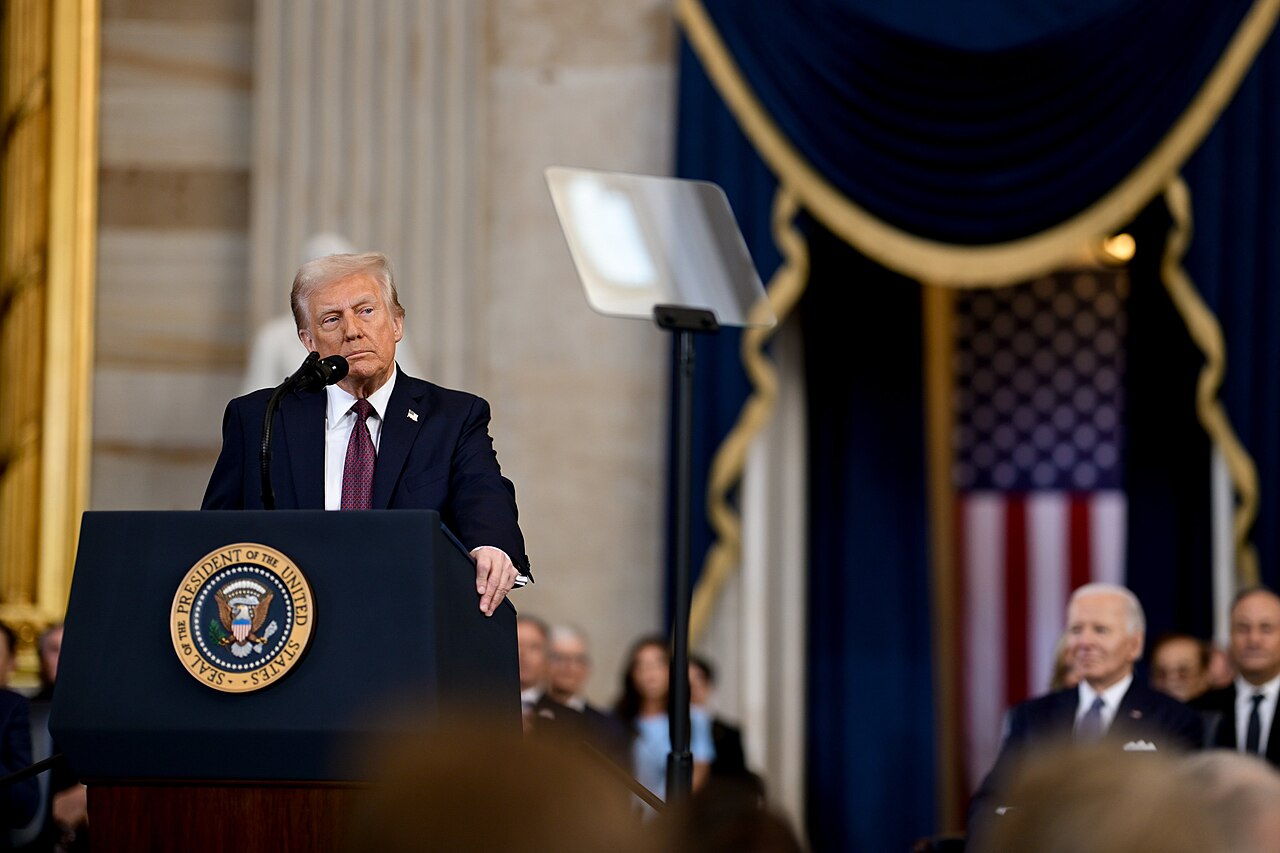
Trump purged America’s Leftist toxins. Now hubris will be his downfall
From ending DEI madness and net zero to securing the border, he’ll leave the US stronger. But his excesses are inciting a Left-wing backlash

California’s wealth tax tests the limits of progressive politics
Until the country finds a way to convince the average American that extreme wealth does not come at their expense, both the oligarchs and the heavily Democratic professional classes risk experiencing serious tax raids unseen for decades.
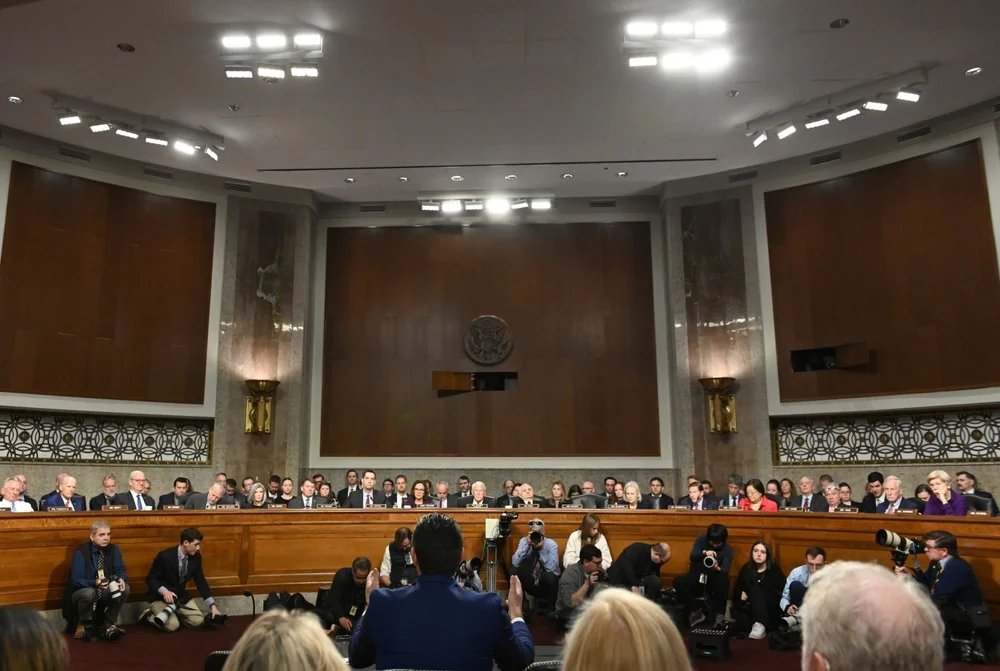
Storm Over the Appointment Process
This is not your grandfather’s appointment process; in fact, it’s not even your older brother’s.
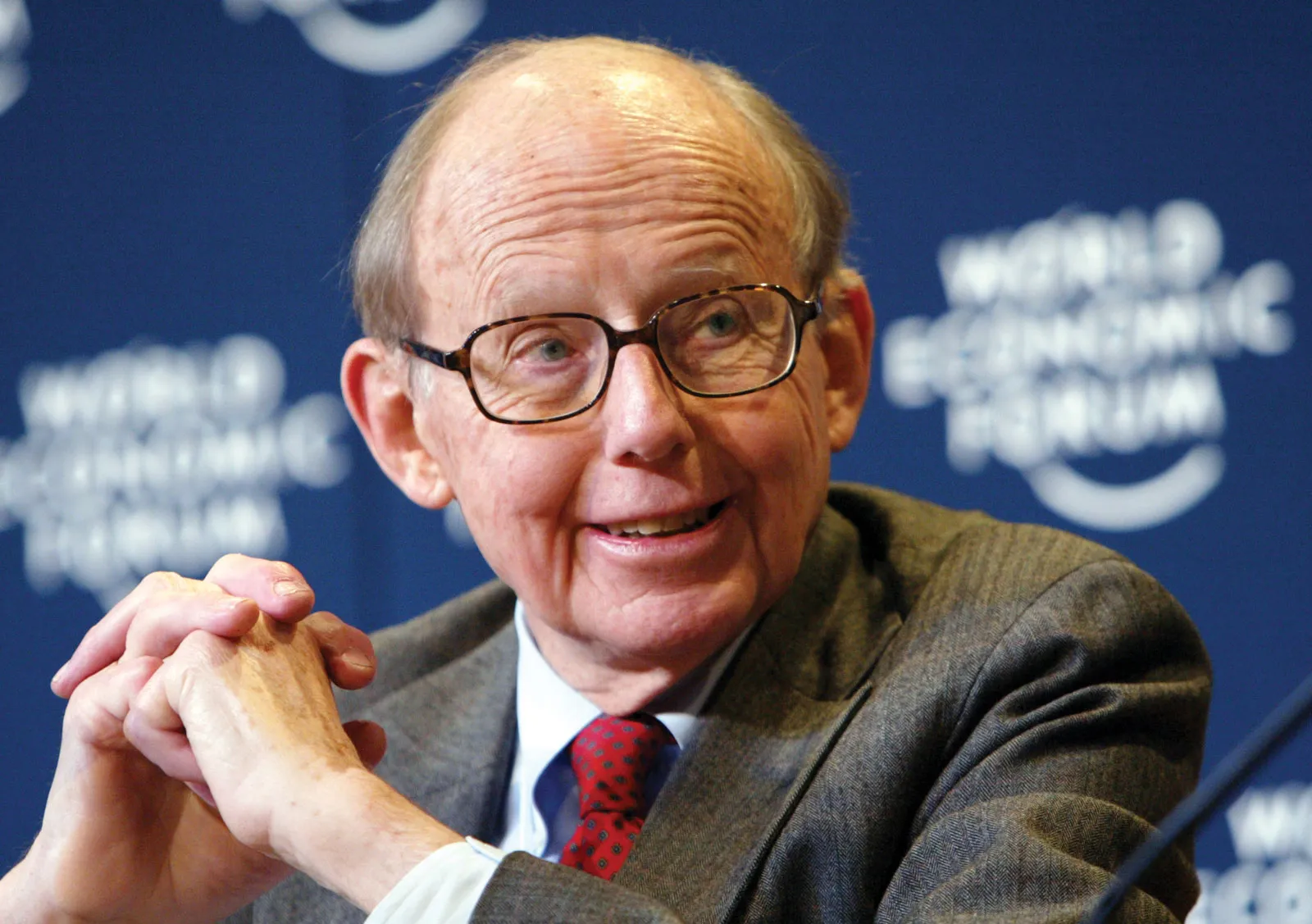
The Clash of Civilizations at 30
Three decades on, Huntington did not foresee the extent to which the West would erode, but he did perceive the warning signs.


